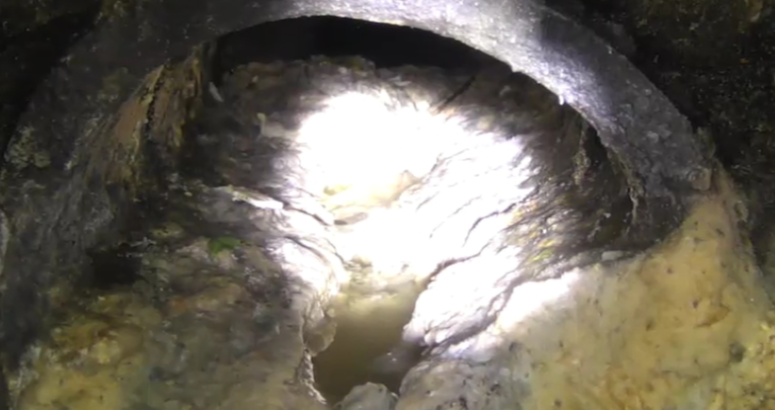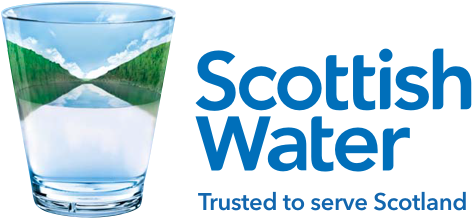Ballater and Braemar Drains to go on Diet
17 October 2022“We have noticed lots of extra fat coming into the local waste water treatment works, particularly during high season, in this area of Deeside - this blocks up the treatment works, while also creating the perfect conditions for fatbergs to form in our sewers. ”
Alex Milligan
Trade Effluent Quality Advisor, Scottish Water
Scottish Water is to step up its fight against fatbergs this month, with a Fat Free Sewer project in two Aberdeenshire villages.
After the success of a 2018 pilot in St Andrews, the utility company has now turned its attention to Ballater and Braemar in a bid to reduce the amount of fats, oils and grease – referred to as FOG – that get poured down drains, causing chokes in the sewer network.
As part of the project, food waste management experts will attend local food service establishments including takeaways, cafes, restaurants and hotels to provide advice on the best way of dealing with FOG.
There are around 36,000 sewer blockages a year across Scotland, costing customers £7 million and risking unpleasant consequences in homes and communities – more than half of these are caused by FOG being disposed of incorrectly down drains and sinks. Over time, the build-up of these substances can cause fatbergs which block the sewers and lead to flooding and pollution.
A team of Network Protection Officers from Environmental Compliance & Services (ECAS) will visit businesses in the two villages on behalf of Scottish Water to advise on the best ways to dispose of FOG and to check if the grease management systems they have – if they have one at all - is sufficient for their needs. It is estimated that Scotland-wide around eight in ten establishments have inadequate or no system in place at all.
Where they find a grease management system in a kitchen which is inefficient, they will offer advice on what improvements should be made and return at a later date to see if the necessary action has been taken.
Alex Milligan, Trade Effluent Quality Adviser at Scottish Water, said:
“Many blockages in our sewer network occur in Aberdeenshire as a result of the incorrect disposal of fats and oils. The consequences on the environment can be huge - it can cause flooding to properties and roads and pollute rivers, as well as impacting valuable assets such as bathing waters.
“We have noticed a lot of extra fat coming into the local waste water treatment works, particularly during high season, in this area of Deeside – this blocks up the treatment works and means it may not be working as effectively as we would like, while also creating the perfect conditions for fatbergs to form in our sewers.”

Scottish Water Sewer Pipe
This is what can happen to our assets when fats, oils, and grease are disposed of incorrectly
Alex added:
“While we currently visit food establishments on a reactive basis once blockages have occurred, this project is about proactively trying to engage with business owners and giving them advice and guidance on what they can do to protect and preserve our valuable sewer network. We are effectively attempting to put the drains in Ballater and Braemar on a diet.
“Our Nature Calls campaign, which we launched earlier this year, also highlights the huge issues that wet wipes can cause for the sewer networks, especially when they combine with FOG to create chokes so we are asking everyone to think very carefully about what ends up going down their drain or toilets.”
Philip Soden, CEO of ECAS, said: “We are excited to be working with Scottish Water on this project. We have extensive experience working with the food service sector to ensure waste FOG is trapped at source and providing the right advice and education to achieve this. We will be encouraging the food service sector across the region to trap this valuable fuel source and ensure it is utilized within the waste-to-energy sector.
This project will support all businesses to do their bit in making sure their businesses are part of the drive towards sustainability by supporting the circular economy. We are looking forward to working in partnership with all food service businesses in Braemar & Ballater to reduce FOG currently entering the public sewerage system and protecting our environment.”
Facts:
- Fat, oil and grease in liquid form may not appear to be harmful but as it cools it congeals and hardens
- This can cause blockages to the inner lining of drainage pipes, which can lead to waste water flooding into gardens and properties, causing a health hazard to wildlife and the local environment
- In extreme cases, blocked sewers can spill into burns, rivers, streams, coastal waters and beaches, causing environmental damage
- Scottish Water deals with 37,000 blockages every year – at a cost of £6.5 million to attend and clear
- The waste water drain which runs from your house to the public sewer is usually only about four inches wide, which is less than the diameter of a DVD
- Scottish Water maintains and improves over 30,000 miles of sewer pipes which take waste water away from homes and business premises across Scotland. We then treat this at over 1,800 waste water treatment works before returning it to the environment.
- Everything you put down your plugholes, toilets and drains will all end up in the drains and sewers
- Whether it is saturated fat (like lard), mono-unsaturated fat (like olive oil) or vegetable oil, they all congeal and harden.
The wrong items ending up in Scotland’s pipes is the central focus of Scottish Water’s Nature Calls Campaign which launched earlier this year and urges customers to bin all wipes and back the ban on wipes containing plastics. Find out more by visiting www.yourwateryourlife.co.uk/naturecalls
For further information including images please contact the Scottish Water press office on 0131 445 6882
www.facebook.com/scottishwater







